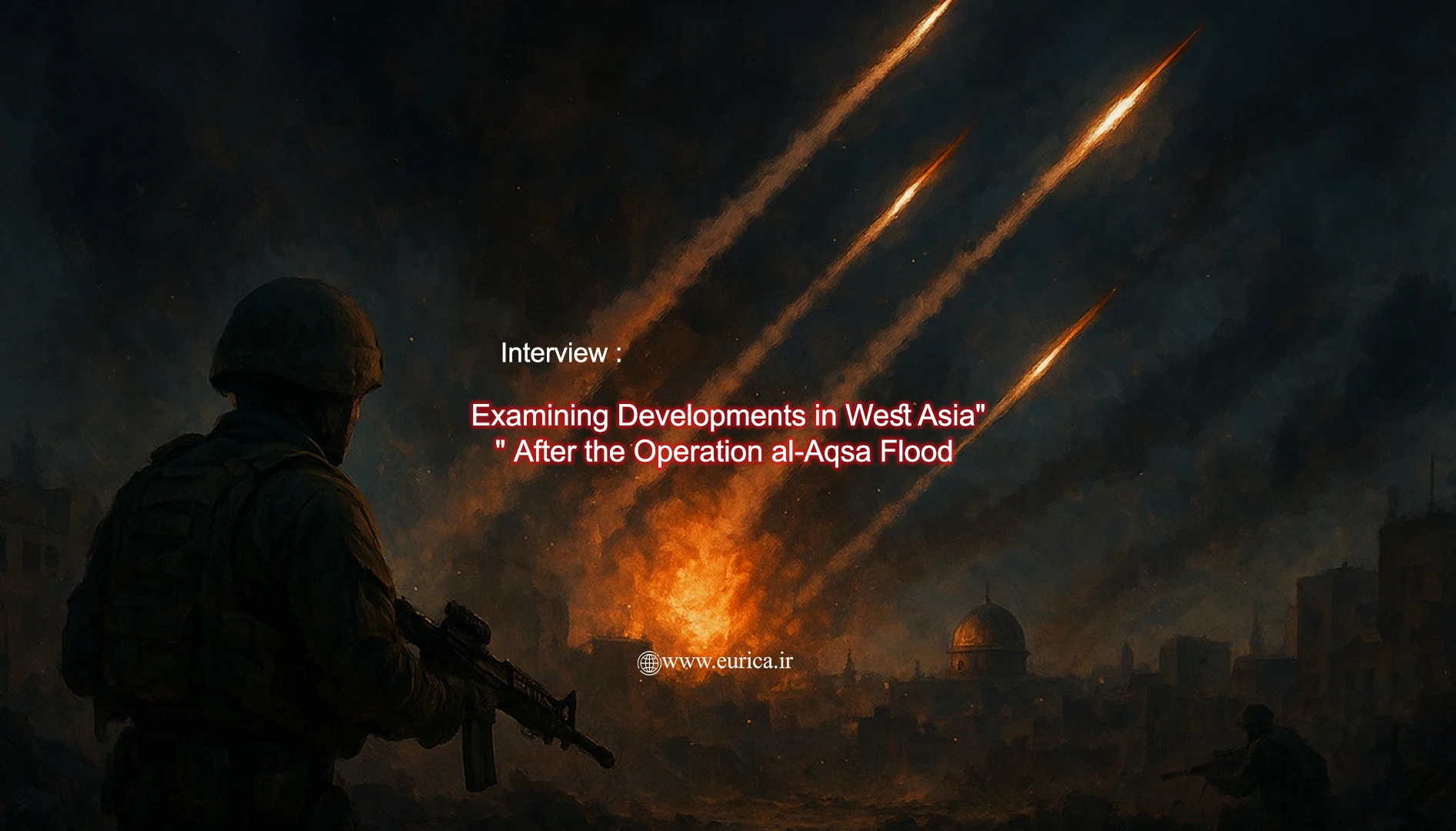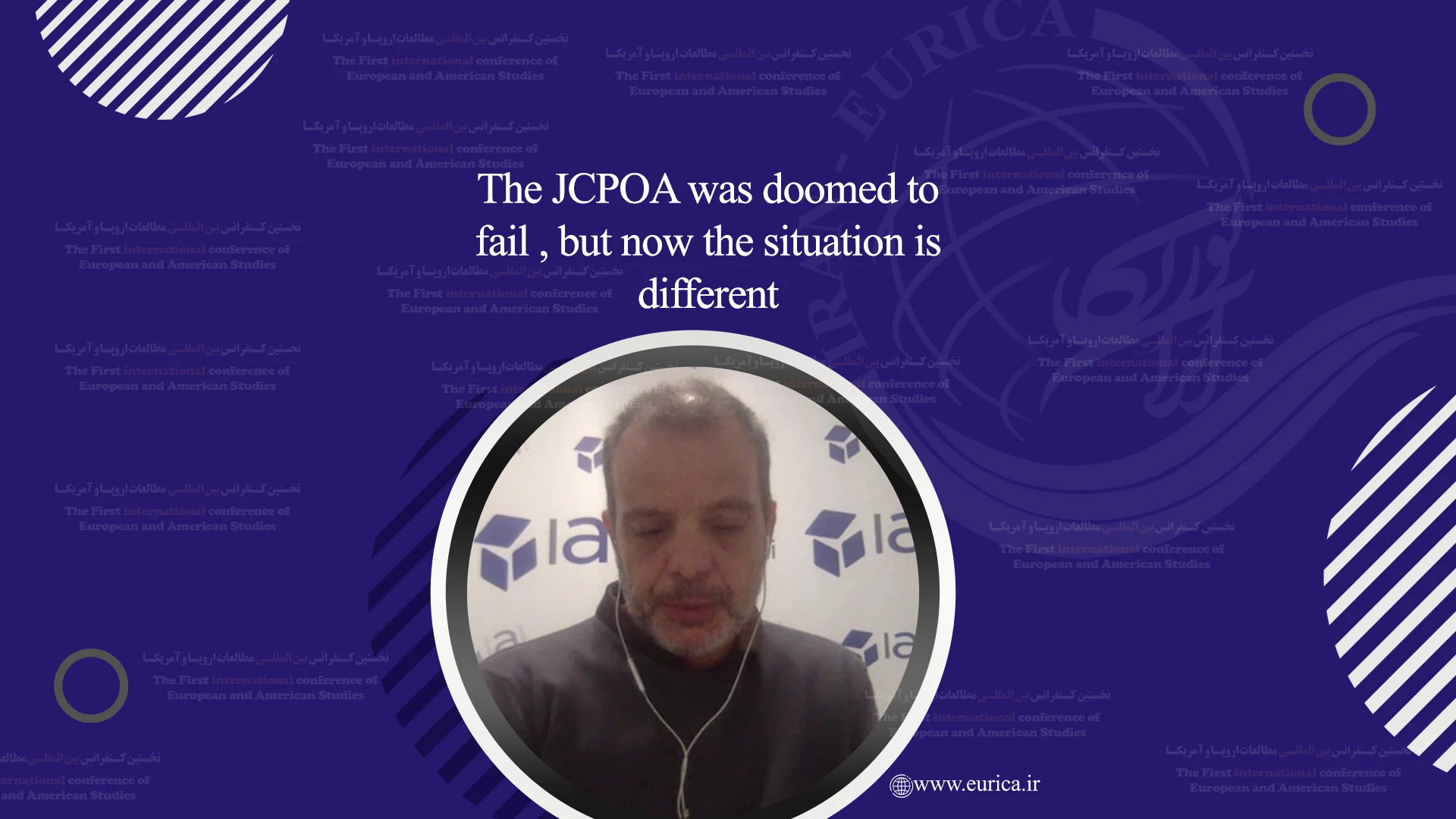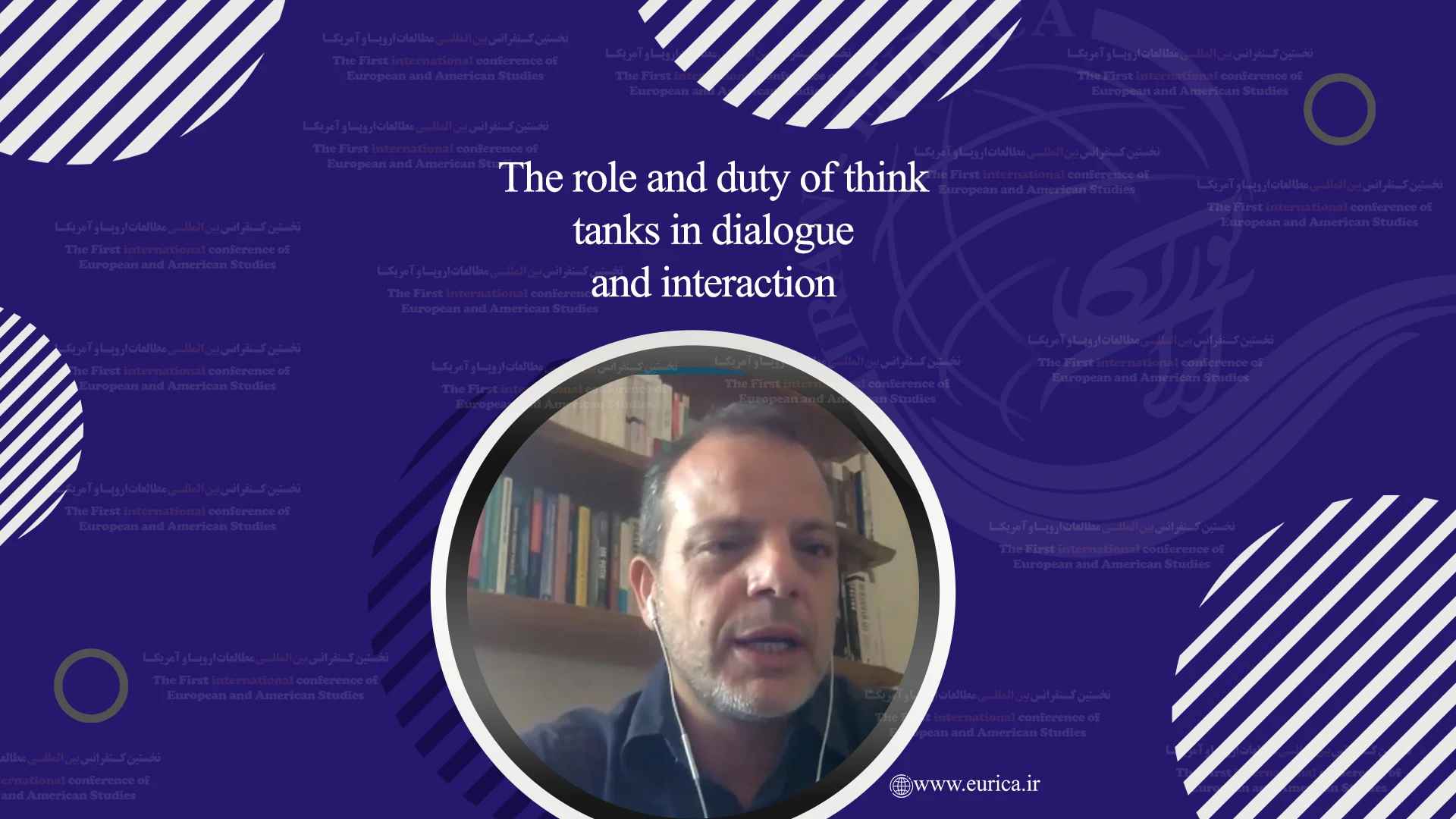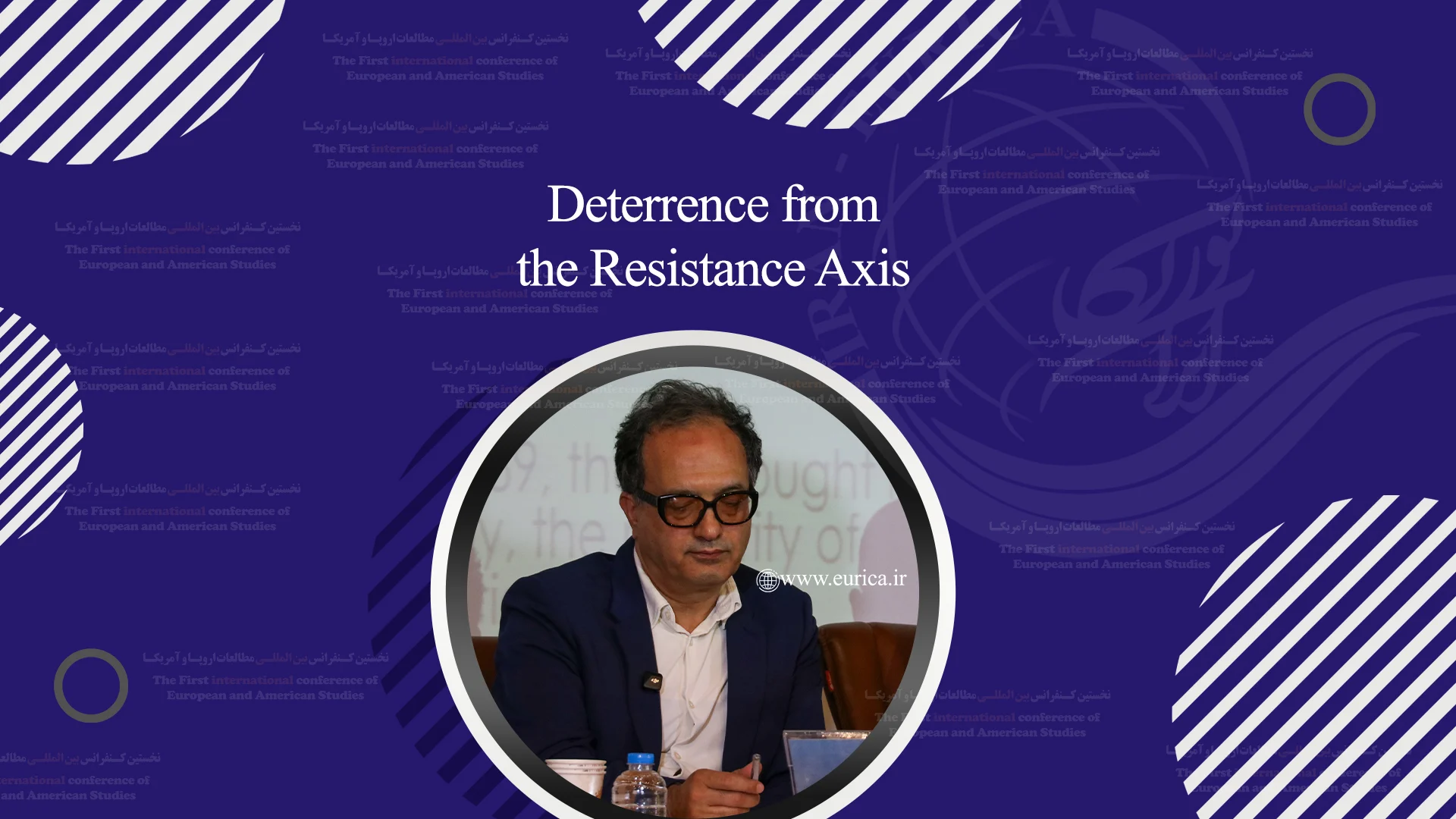Interview: “Examining Developments in West Asia After the Operation al-Aqsa Flood “
The developments in West Asia following the October 7th operation last year are significant topics that, due to their scope, impact, consequences, and involvement of various regional and extra-regional actors, require careful consideration and analysis. In this regard, in an interview with Dr. Hamidreza Dehghani Pudeh, we have made an effort to provide a timely and somewhat comprehensive perspective on this issue. Dr. Dehghani Pudeh is a former diplomat and ambassador of the Islamic Republic of Iran to Qatar. He has held various roles, including Assistant to the Minister of Foreign Affairs and Director General for the Middle East and North Africa since 2018, Head of the Middle East and North Africa Department, Ambassador and Permanent Representative of the Islamic Republic of Iran to the Organization of Islamic Cooperation in Jeddah, Head of the Middle East and Persian Gulf research program at the Institute of Political and International Studies of the Ministry of Foreign Affairs, Deputy Representative of the Islamic Republic of Iran in Beirut, Deputy Director General for Training and Human Resource Development, and First Secretary at the Embassy of the Islamic Republic of Iran in Damascus. Dr. Hamidreza Dehghani Pudeh holds a PhD in Private Law, is a university lecturer, and has authored several academic works in the fields of International legal studies and Middle Eastern affairs.
Interviewer: It has been one year since the operation “Al-Aqsa Flood”, and Hamas articulated specific objectives. How would you characterize the roots and aims of this operation? In your opinion, have these goals been achieved after one year?
Dehghani: “Israel’s losses during the one-day operation constituted an irreparable defeat. From a security perspective, it put an end to the myth of Israel’s invincibility. After more than a year, Israel has still not achieved its declared objectives. Israel announced three goals: the release of prisoners, the destruction of Hamas, and the elimination of the threat from Gaza. If we focus solely on these goals, Israel has failed not only in the first operation but also in the second one. If we consider Hamas’ objectives from that operation, one might argue that Hamas has also failed to free its prisoners, it has failed to defend the people there, and it has significantly weakened its military capabilities. Therefore, it seems that neither side has achieved its goals. However, at first, Hamas has managed to keep the vast majority of Israeli prisoners, despite all the bombings, and these prisoners will contribute to the future prisoner swap with Israel. Second, Hamas was able to stop the normalization of relations between Arab countries and the Israeli regime. It also managed to remind the international community of the severity of the Palestinian issue. Hamas’s operation put an end to the myths created by Zionists, such as the invincibility of Israel.
Interviewer: From symbolic and ideological perspectives, Hamas secured a victory; however, in material terms…such as prisoner exchanges or improving the situation, Hamas has not yet succeeded. On the other hand, Israel’s credibility has been seriously questioned, and many countries are critically highlighting Israel’s blatant human rights violations.
Dehghani: Furthermore, Israel has suffered a major defeat in global public opinion. This is significant because public opinion has been a source of legitimacy for the actions of this regime for the past seventy years. However, the global framework has been formed, and the outrage of public opinion around the world has not been able to prevent Israeli aggression.
Interviewer: The Al-Aqsa Flood operation and Israel’s wars in Gaza and Lebanon have had both short- and long term consequences for the region. What do you consider the most important consequences?
Dehghani: One of the most important consequences is that a deep sense of hopelessness has emerged among the countries of the region and the peoples of the world regarding those norms and values established by the victorious powers of World War II, which were supposed to prevent war and maintain international peace and security. These norms have been called into question, and the global community have realized that it cannot prevent a war when one of the veto-wielding powers is behind it, either directly or through support.
Another consequence is that although some resistance leaders in Palestine and Lebanon have been assassinated, and the resistance organizations and their military structures have suffered some setbacks, the theory of resistance has not been undermined and remains strong. Resistance is a result of occupation, and occupation guarantees the survival of resistance. Therefore, as long as occupation and aggression persist, resistance will continue.
Meanwhile, we have witnessed a kind of solidarity among the elements or axes of resistance. Perhaps it can be said that, despite everything, it was the resistance groups, rather than governmental bodies of the regional countries, that were able to stand up to this aggression. In other words, governments have shown that they remain incapable of doing so—either due to the dependencies of their officials or because of their focus on infrastructure development, which leads them to be more cautious and conservative. For example, the governments in Syria, Iraq, or Lebanon could not achieve what the resistance groups were able to do.
Interviewer: Given the recent ceasefire, how do you see the prospects for peace in Lebanon?
Dehghani: It seems that Netanyahu took full advantage of the opportunity presented by the weakness of the U.S. government. The weakness of President Biden and the fragility of the power structures in the U.S. during this period led to a situation that not only was disastrous for the people of the region, but also created a dark chapter in the record of U.S. complicity with the aggressor. Now that Trump has emerged victorious, I have no doubt that a ceasefire will be established.
Interviewer: What steps should the resistance take to maintain or shift the situation in Lebanon in its favor?
Dehghani: I still believe that we must remain committed to the principles of resistance. The development of one aspect of resistance should not lead to the neglect of other aspects. Politically, culturally, socially, and economically, these aspects must evolve harmoniously with the military growth. If military growth surpasses other aspects, defeating the resistance becomes easier. In my view, Hezbollah had this kind of growth in its agenda and established numerous cultural, social, and economic organizations as part of this approach. As a country that supports resistance and has various tools at its disposal, we must pay more attention to some of these often-overlooked elements in this struggle.
Interviewer: Such as what elements?
Dehghani: For example, it is essential that we create a common language regarding the need to prevent Israeli aggression and preserve resistance. For example, in 1996, Syria was one of the supporters of the resistance, while U.S. and French foreign ministers used to hold meetings there. At that time, a committee was formed with representatives from the U.S., Syria, Lebanon, and Israel to oversee the ceasefire and monitor its implementation. But such an opportunity no longer exists. That’s only one reason why Syria’s influence has significantly diminished. We need such mediators. We had Russia as a mediator, but Russia is now caught in its own issues. Besides, Russia is engaged in the Ukraine war and has its own weaknesses regarding Israel, as part of the Israeli population is of Russian descent. Therefore, it cannot fully cooperate. Moreover, we do not share the same language with Russia on the issue of resistance. For instance, Lavrov compared Israel’s actions to those of his own country against Ukraine. It seems that we need to find a form of understanding with the region on the issue of resistance. Right now, every country in the region is primarily concerned with avoiding harm to itself and is unwilling to take any practical steps to support the resistance.
Interviewer: How do you think Trump’s return will affect U.S. policy toward Lebanon and Gaza?
Dehghani: The power of the U.S. president is very high. The president who is about to come is a strong individual, and both the presidency and Congress are controlled by Republicans, which makes them even stronger. However, Trump’s unpredictability remains a key variable. Trump is still upset with Netanyahu for congratulating Biden too early in the last election.
Interviewer: What will be the consequences of this situation for the region?
Dehghani: Currently, Europe is at an impasse with us over a misunderstanding related to Ukraine. This situation did not exist during Trump’s first term; on the contrary, they were more aligned with us back then. Right now, we are much further behind. Similarly, regarding the nuclear issue, we had a moment when there was an agreement, and the U.S. was part of it. Even Trump was on board with this agreement for about a year. The same goes for actions related to Palestine. For instance, the law passed in Congress in 1995, which required the U.S. government to move its embassy from Tel Aviv to Jerusalem, was delayed every six months by U.S. presidents, who claimed it was not in the interest of the U.S. and would seek a waiver from Congress. Trump also sought a waiver twice. What I want to say is that the Trump who left the nuclear deal, the Trump who recognized Jerusalem as the Israeli capital, the Trump who implemented the “Deal of the Century,” and the Trump who recognized the Golan Heights as Israeli territory, was a far cry from the Trump of the beginning of his first term. If Trump returns, he may even declare the West Bank as part of Israel.
Interviewer: My understanding is that, rather than waiting to see what Trump’s America will do, we should take the necessary steps on our side.
Dehghani: I would say we should make efforts. We might not achieve a complete result, but what action ever guarantees a result? Let me mention something. There is a cliché that after we helped America in Afghanistan, we became the axis of evil; or after we agreed to the nuclear deal, they withdrew from it. We only analyze what has happened. We do not analyze what could have happened had we not taken action. After the 9/11 attacks, many believed that the U.S. would target Iran before Afghanistan and Iraq. We do not analyze how the potential danger posed by the Taliban was eliminated. We do not analyze how the threat of Saddam and the Ba’ath Party was addressed. We do not analyze how the people of Iraq, both Shia and Sunni, were freed from a dictator. The Americans believed that their actions would benefit the U.S., but in the end, we benefitted. The Arab world always says that Iran gained from this, though this was not part of a mutual agreement. What I mean to say is that if you take action, you must be aware that these parties will betray agreements. But we are firm in our belief that they are traitors. Any agreement they make, if their interests are at stake, they will break it; but until they break it, you will have gained from it.
Interviewer: My final question is about Iran. What kind of assessment can be made regarding Iran’s actions after the operation Al-Aqsa Flood?
Dehghani: Regarding Iran, I believe we should avoid falling into rhetorical isolation. We should not allow ourselves to be isolated in discourse—whether internally, regionally, or globally. If we have a just cause, we must present it in a way that generates support, because the art of politics and diplomacy is to present your case in a manner that gains the support of the people, the region, and the world. We are in a position, in terms of social, economic, and even military capital, where we need to pay attention to these elements. The important thing is that the new government, with its slogan of unity, should be able to engage in active diplomacy both domestically, regionally, and internationally to foster cooperation. The focus of diplomacy is not simply to justify military actions if they occur; diplomacy is broader it can sometimes replace military action.
 Click to view and download
Click to view and download




